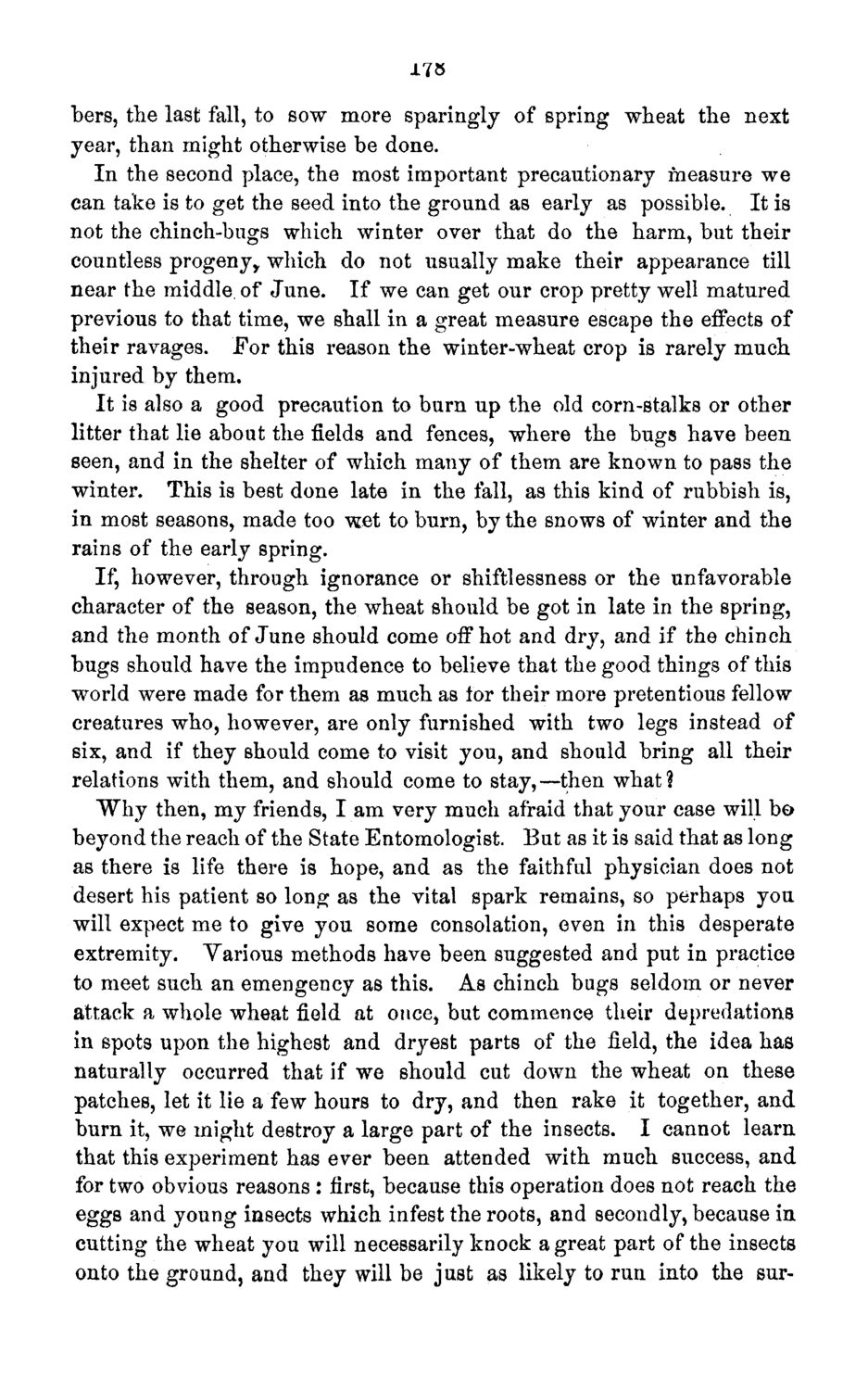| |
| |
Caption: Board of Trustees Minutes - 1871
This is a reduced-resolution page image for fast online browsing.

EXTRACTED TEXT FROM PAGE:
178 bers, the last fall, to sow more sparingly of spring wheat the next year, than might otherwise be done. In the second place, the most important precautionary measure we can take is to get the seed into the ground as early as possible. It is not the chinch-bugs which winter over that do the harm, but their countless progeny,, which do not usually make their appearance till near the middle of June. If we can get our crop pretty well matured previous to that time, we shall in a great measure escape the effects of their ravages. For this reason the winter-wheat crop is rarely much injured by them. It is also a good precaution to burn up the old corn-stalks or other litter that lie about the fields and fences, where the bugs have been seen, and in the shelter of which many of them are known to pass the winter. This is best done late in the fall, as this kind of rubbish is, in most seasons, made too wet to burn, by the snows of winter and the rains of the early spring. If, however, through ignorance or shiftlessness or the unfavorable character of the season, the wheat should be got in late in the spring, and the month of June should come off hot and dry, and if the chinch bugs should have the impudence to believe that the good things of this world were made for them as much as tor their more pretentious fellow creatures who, however, are only furnished with two legs instead of six, and if they should come to visit you, and should bring all their relations with them, and should come to stay,—then what? W h y then, my friends, I am very much afraid that your case will bo beyond the reach of the State Entomologist. But as it is said that as long as there is life there is hope, and as the faithful physician does not desert his patient so long as the vital spark remains, so perhaps you will expect me to give you some consolation, even in this desperate extremity. Various methods have been suggested and put in practice to meet such an emengency as this. As chinch bugs seldom or never attack a whole wheat field at once, but commence their depredations in spots upon the highest and dryest parts of the field, the idea has naturally occurred that if we should cut down the wheat on these patches, let it lie a few hours to dry, and then rake it together, and burn it, we might destroy a large part of the insects. I cannot learn that this experiment has ever been attended with much success, and for two obvious reasons : first, because this operation does not reach the eggs and young insects which infest the roots, and secondly, because in cutting the wheat you will necessarily knock a great part of the insects onto the ground, and they will be just as likely to run into the sur-
| |